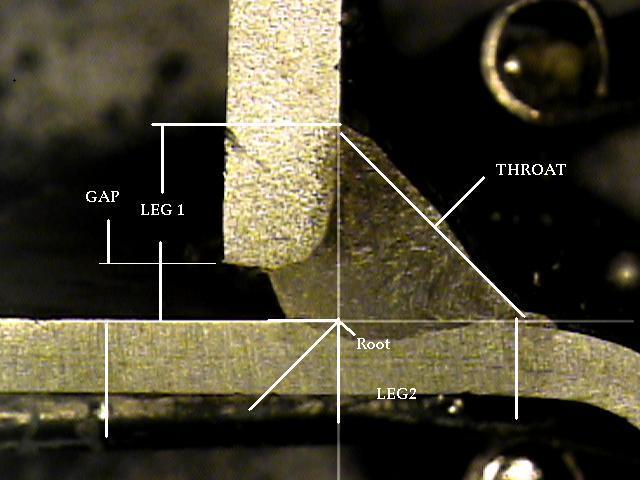The Relevance of Thorough Welding Examination in Industrial Applications
In the world of commercial applications, the importance of meticulous welding inspection can not be overemphasized. It plays a necessary role in making certain the architectural integrity and long life of bonded elements. Advanced non-destructive screening methods permit the very early detection of potential flaws, such as fractures and insufficient fusion, which, if left unchecked, might result in catastrophic failings. Moreover, adherence to rigorous industry criteria not only assures high quality yet likewise constructs client self-confidence. As we explore the complex benefits of diligent welding examinations, one should take into consideration the wider effects on safety and security, reliability, and cost-effectiveness in commercial procedures.
Enhancing Structural Stability
When it comes to welding evaluation in industrial applications, improving structural integrity is extremely important. The key goal of welding assessment is to make sure that the welds are capable of birthing the anticipated tons and anxieties they will come across in solution.
The value of preserving structural integrity in bonded structures can not be overemphasized. Inadequately executed welds can lead to tragic failures, causing expensive repair work, downtime, and even endangerment of human lives. Inspectors play a critical function in the lifecycle of commercial elements, giving assurance that the welding process delivers the desired toughness and sturdiness.
Moreover, advanced innovations, such as phased array ultrasonic screening and electronic radiography, offer improved capabilities in spotting prospective weaknesses, enabling for rehabilitative measures before concerns escalate. By focusing on the honesty of welds through careful inspection, markets can make certain operational efficiency and extend the durability of their facilities.
Identifying Welding Problems
Identifying welding defects is a critical facet of guaranteeing the safety and security and reliability of bonded frameworks. Usual welding flaws consist of porosity, fractures, insufficient blend, and damaging.

Competent examiners make use of both aesthetic evaluation and progressed non-destructive testing (NDT) methods, such as ultrasonic or radiographic screening, to spot these issues. The timely identification and rectification of welding problems are critical to preserve the structural honesty and durability of commercial components.
Ensuring Compliance Specifications
Preserving the stability of bonded frameworks prolongs past determining issues; it needs adherence to rigorous conformity requirements. Compliance with well established criteria, such as those provided by the Welding Inspection Madison American Welding Culture (AWS) and the International Organization for Standardization (ISO), makes sure that welds satisfy minimal security and high quality demands. These standards include a variety of requirements, consisting of product requirements, welding treatments, and credentials of welders. Adherence to these criteria is important to avoid structural failures, which could lead to catastrophic consequences in commercial applications.
Normal audits and assessments are vital in verifying conformity. Inspectors must possess an extensive understanding of the relevant standards and be proficient at making use of different non-destructive testing (NDT) methods to examine weld quality. By making sure that welding practices line up with compliance requirements, firms reduce the threat of non-conformity, which can result in lawful liabilities and security dangers.
Furthermore, keeping conformity not only safeguards architectural honesty but also boosts a company's credibility in the sector. Clients and stakeholders are most likely to count on companies that consistently demonstrate a dedication to top quality and safety and security through rigorous conformity. Hence, ensuring compliance requirements is a critical component in the successful application of welding in commercial applications.
Lowering Maintenance Costs

The application of innovative non-destructive testing (NDT) methods, consisting of ultrasonic, radiographic, and magnetic fragment evaluations, enhances the capability to discover subsurface flaws without endangering the structural stability of parts. By utilizing these strategies, markets can significantly expand the life span of their tools, reducing downtime and the connected financial problem of maintenance activities.
Furthermore, a robust welding inspection regimen supports the optimization of upkeep routines, changing from reactive to anticipating upkeep techniques. This aggressive method not just reduces unanticipated failures however additionally improves source allotment, making certain that maintenance efforts are concentrated and effective. Eventually, the financial investment in strenuous welding evaluation is countered by the substantial cost savings understood through decreased maintenance needs, contributing positively to the total functional Continued efficiency of industrial business.
Improving Precaution
Welding examination plays a vital role in this context, as it ensures that all joints and links satisfy strict safety standards. Comprehensive examinations aid determine issues such as splits, porosity, or insufficient fusion that could endanger structural integrity.
Approaches like ultrasonic testing, radiographic testing, and magnetic fragment inspection enable for thorough examination without damaging description the framework. Applying a robust top quality control system that includes normal training for assessors and welders makes certain adherence to established security criteria.
Lastly, fostering a culture of security within the company stresses the relevance of detailed welding inspections. Encouraging open communication and partnership amongst welders, assessors, and designers adds to a common dedication to safety and security quality. Welding Inspection Madison. In doing so, sectors can secure their procedures, secure workers, and preserve public depend on

Final Thought
Complete welding evaluation is vital in industrial applications, dramatically improving architectural integrity and dependability. Ultimately, the thorough implementation of welding examinations plays a crucial role in preserving functional effectiveness and safety and security in industrial setups.
As we discover the complex benefits of thorough welding inspections, one need to take into consideration the wider ramifications on safety and security, reliability, and cost-effectiveness in industrial procedures.
The key goal of welding evaluation is to make sure that the welds are qualified of bearing the anticipated anxieties and lots they will experience in service. Effective welding examination plays an important duty in minimizing these prices by guaranteeing the stability and long life of welds, therefore mitigating the risk of premature failures.Thorough welding evaluation is vital in commercial applications, dramatically enhancing architectural integrity and reliability. Ultimately, the persistent execution of welding evaluations plays an important function in preserving operational efficiency and safety in industrial setups.